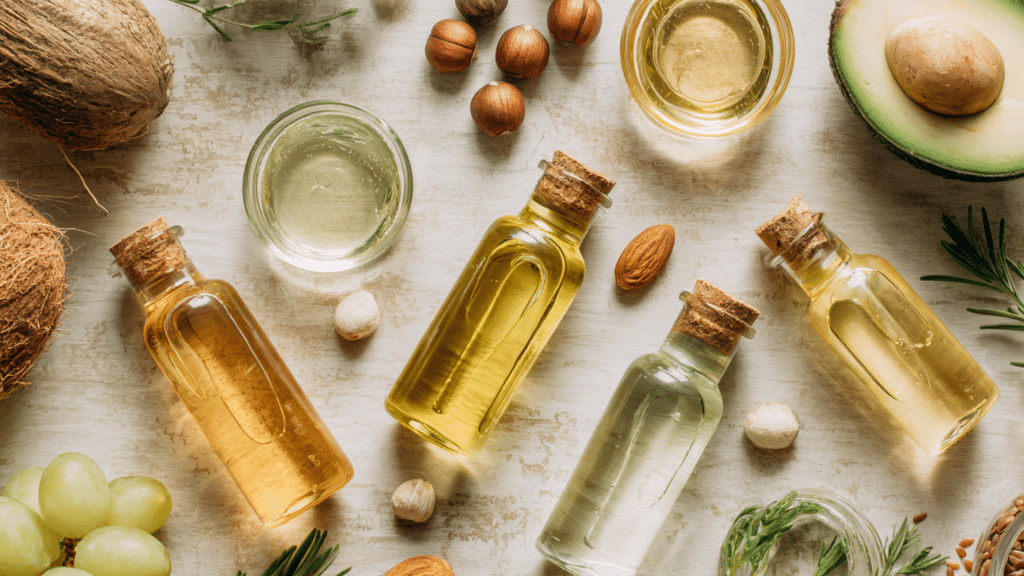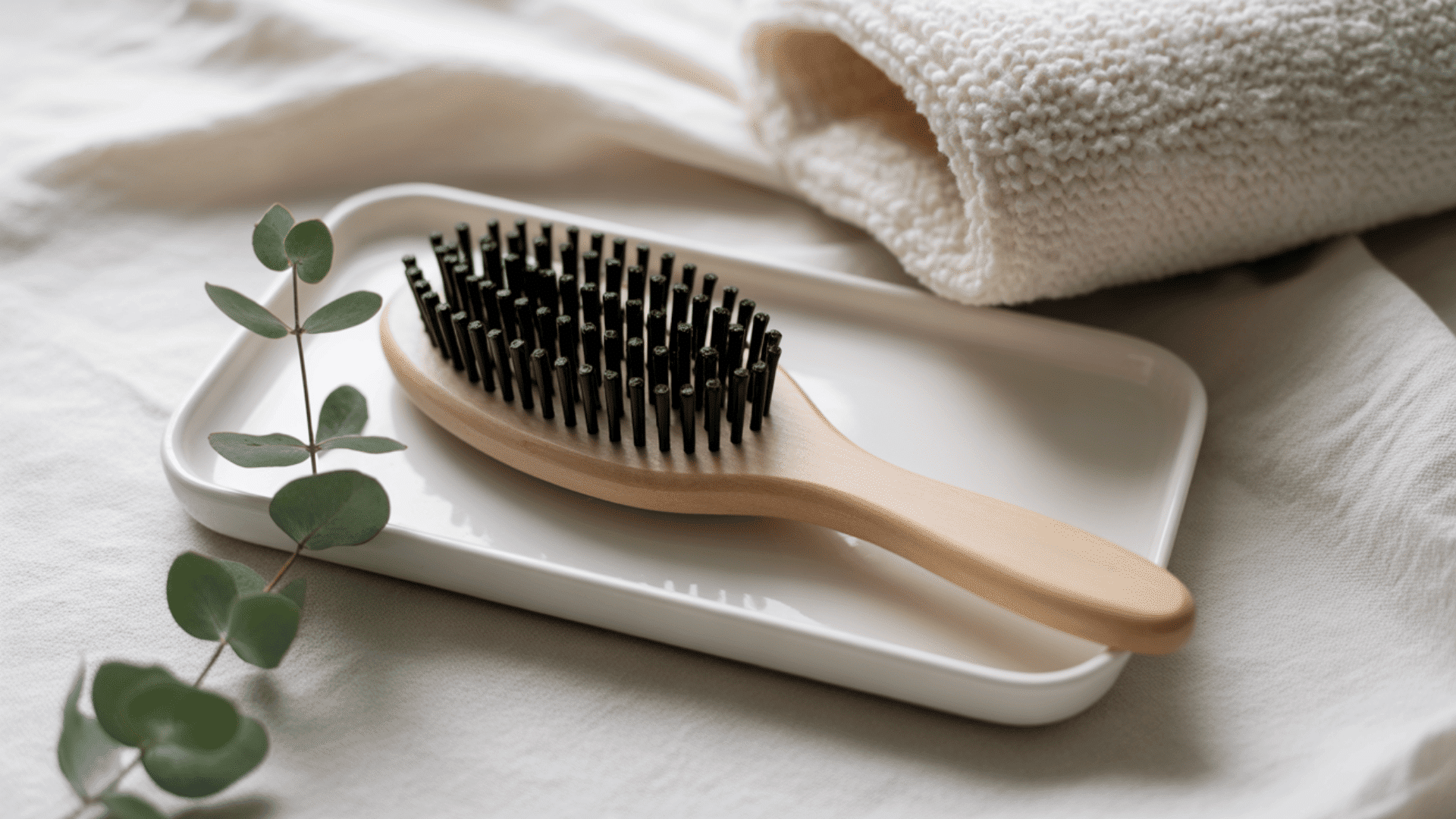Your skin is screaming. That drop of pure peppermint oil you just applied is burning like fire, and you’re frantically washing it off with soap and water.
This painful moment teaches you what thousands of aromatherapy beginners learn the hard way: essential oils are too concentrated to use alone.
But here’s what nobody tells you upfront: the secret isn’t avoiding essential oils.
It’s understanding carrier oils, the unsung heroes that change these potent plant extracts from skin irritants into therapeutic powerhouses.
These gentle vegetable oils don’t just dilute; they enhance, protect, and deliver benefits you may not have known existed.
What Are Carrier Oils and Why Are They Used?
Carrier oils are vegetable oils that come from plants, usually made by cold pressing seeds, nuts, or other plant parts.
Think of them as the delivery truck for essential oils – they literally “carry” the essential oils to your skin in a safe, gentle way.
Here’s what makes carrier oils so important: Essential oils are like super concentrated flavor extracts in cooking. You wouldn’t drink vanilla extract straight from the bottle, right?
The same idea applies to essential oils on your skin. Carrier oils dilute essential oils so they won’t cause irritation, while also adding their own moisturizing benefits.
Carrier oils have four main qualities that make them perfect for this job:
- Viscosity – This is just a fancy word for how thick or thin the oil feels. Some are light and absorb quickly, while others are thicker and take longer to soak in.
- Absorption rate – How fast does the oil disappear into your skin? Fast-absorbing oils are great for daily use, while slower ones work well for massages.
- Scent – Most carrier oils have very little smell, so they won’t compete with your essential oils’ aromas.
- Shelf life – How long the oil stays fresh before going rancid. This varies a lot between different oils.
Best Carrier Oils for Essential Oils
Let’s look at eight amazing carrier oils you can find in Australia. Each one has its own special benefits and works great with essential oils.
1. Jojoba Oil
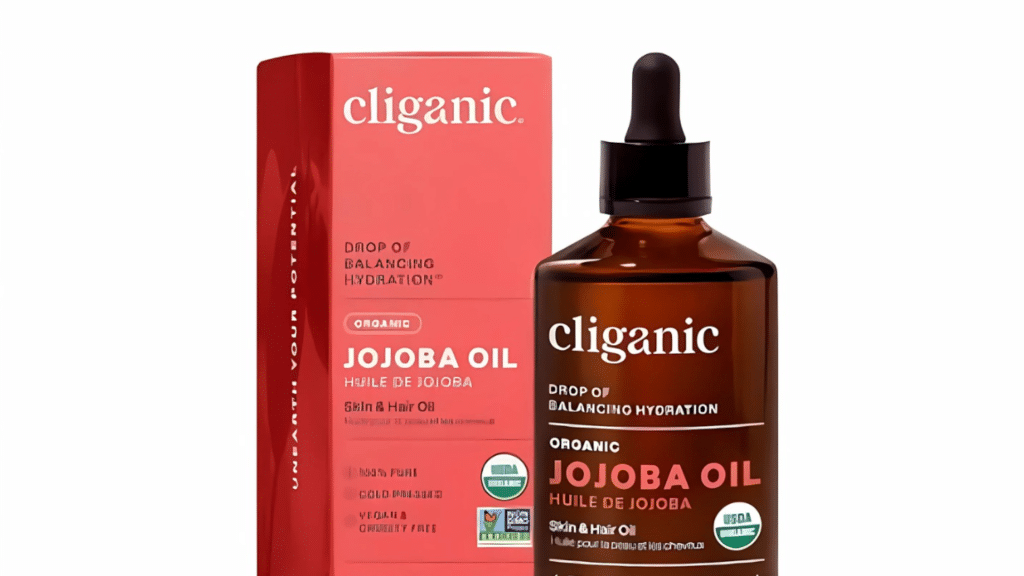
Jojoba oil is actually not an oil at all – it’s a liquid wax that’s almost identical to the natural oils your skin makes. Pretty cool, right? This means it absorbs quickly and won’t clog your pores.
Jojoba seeds are cold-pressed to extract the liquid wax. The cold-pressing method keeps all the natural nutrients intact, which is why quality jojoba oil has such amazing skin benefits.
What makes it special: Jojoba is packed with vitamin E and works for every skin type. It’s especially great if you have oily skin because it helps balance oil production instead of making it worse.
Best uses: Daily moisturizing, face oils, and balancing oily or acne-prone skin.
Where to buy: Look for Cliganic Organic Jojoba Oil
2. Coconut Oil (Fractionated)
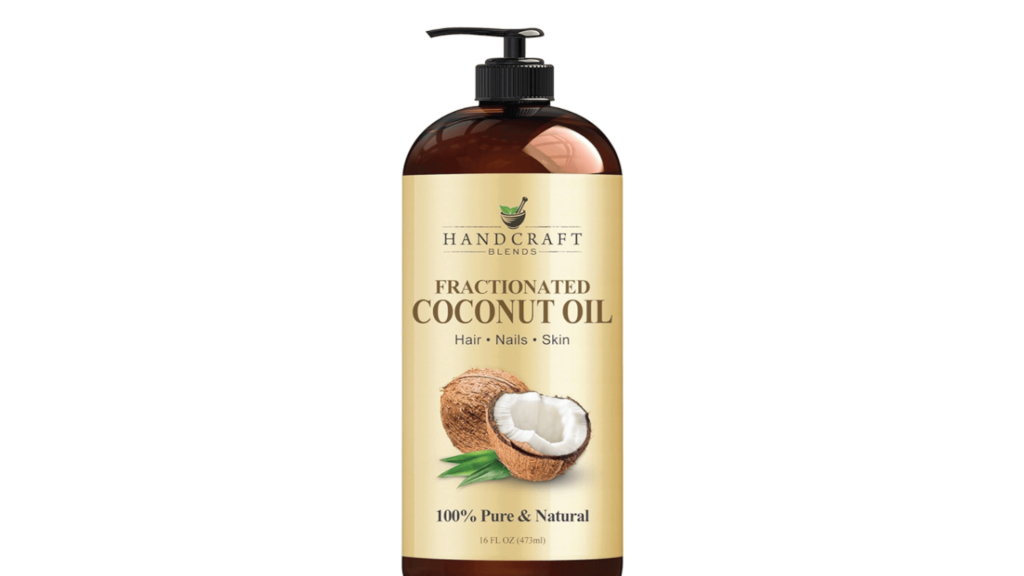
Regular coconut oil gets solid when it’s cool, but fractionated coconut oil stays liquid all the time. It’s been processed to remove the parts that make it hard, leaving behind a super light, non-greasy oil.
First, coconut oil is extracted from dried coconut meat through cold-pressing or expeller-pressing. Then, it goes through a fractionation process where it’s heated and the long-chain fatty acids are removed, leaving only the liquid medium-chain fatty acids.
What makes it special: This oil has natural antimicrobial properties, which means it can help fight bacteria. It’s incredibly light and won’t leave you feeling greasy.
Best uses: Hair treatments, body oils, and any blend you want to absorb quickly.
Where to buy: Handcrafts Blend Coconut Oil
3. Grapeseed Oil
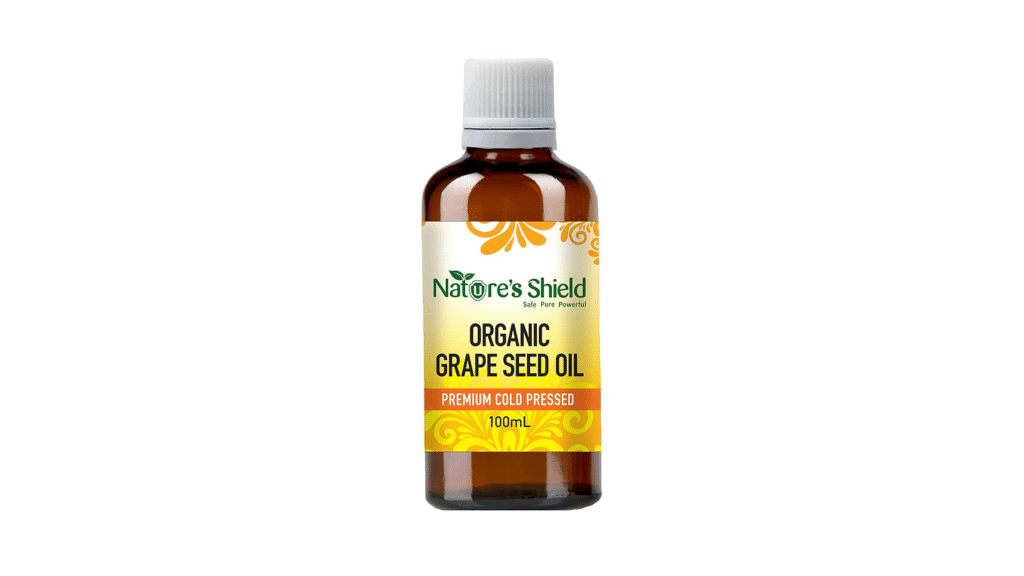
Made from grape seeds (often left over from wine making), this oil is light, almost odorless, and full of antioxidants that help protect your skin.
Grapeseed oil is usually extracted using chemical solvents or mechanical pressing. The higher-quality versions use expeller-pressing (mechanical pressure) or cold-pressing to avoid chemicals and preserve more nutrients.
What makes it special: Grapeseed oil can help tighten your pores and improve circulation. It’s perfect for people with oily or acne-prone skin because it won’t clog pores.
Best uses: Facial oils for oily skin, body massage, and anti-aging blends.
Where to buy: Nature Shield Grapeseed Oil
4. Sweet Almond Oil
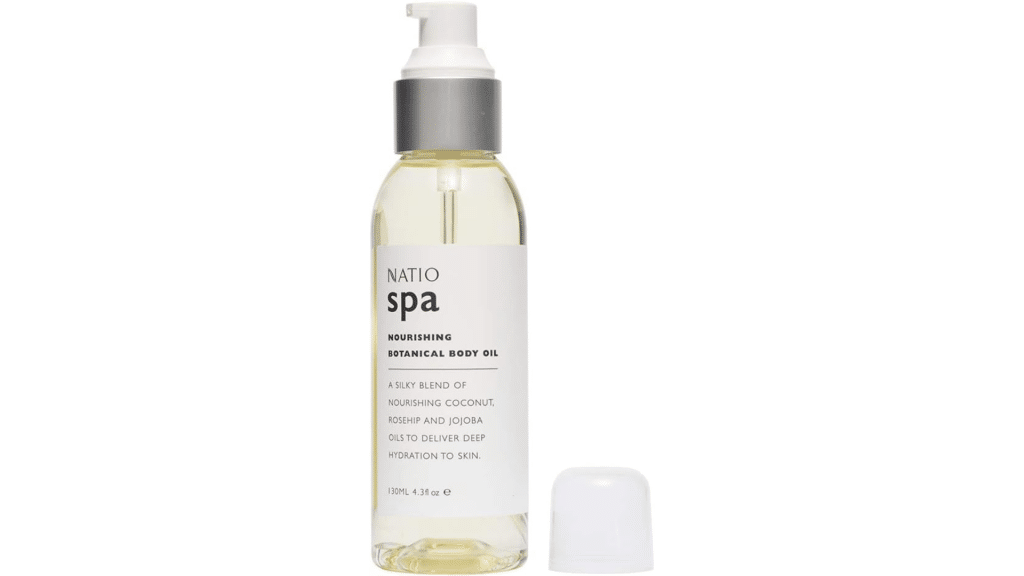
This gentle, mild oil comes from sweet almonds and has been used for skincare for thousands of years. It’s one of the most popular carrier oils because it’s so versatile and rarely causes reactions.
Sweet almonds are cold-pressed or expeller-pressed to extract the oil. Cold-pressed versions retain more vitamins and have a longer shelf life, making them the better choice for skincare.
What makes it special: Sweet almond oil is rich in fatty acids that help soften and smooth your skin. It’s hypoallergenic, making it perfect for sensitive skin or babies.
Best uses: Gentle massage, dry skin relief, and sensitive skin formulations.
Where to buy: Natio Almond Oil is widely available online and in stores.
5. Argan Oil
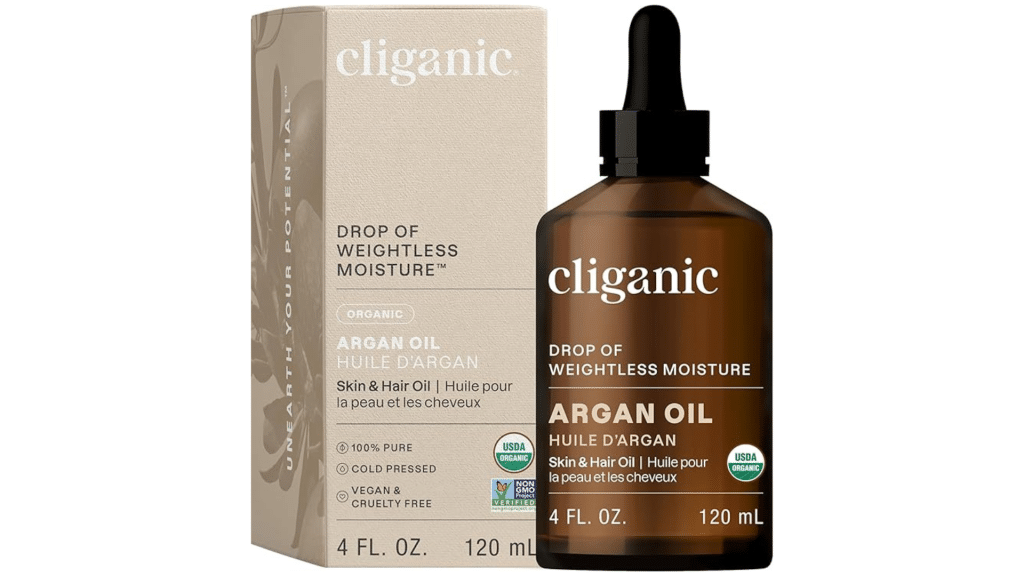
Coming from Morocco’s argan trees, this oil has become super popular in recent years. It’s often called “liquid gold” because of its amazing skin and hair benefits.
Argan kernels are traditionally cracked by hand and cold-pressed to extract the oil.
The traditional method involves roasting the kernels first, but cosmetic-grade argan oil is usually made from unroasted kernels to preserve more nutrients.
What makes it special: Argan oil is loaded with antioxidants and fatty acids that help nourish and repair your skin. It absorbs well without feeling heavy.
Best uses: Anti-aging skincare, hair treatments, and repairing damaged skin.
Where to buy: Cliganic Argan Oil
6. Rosehip Seed Oil
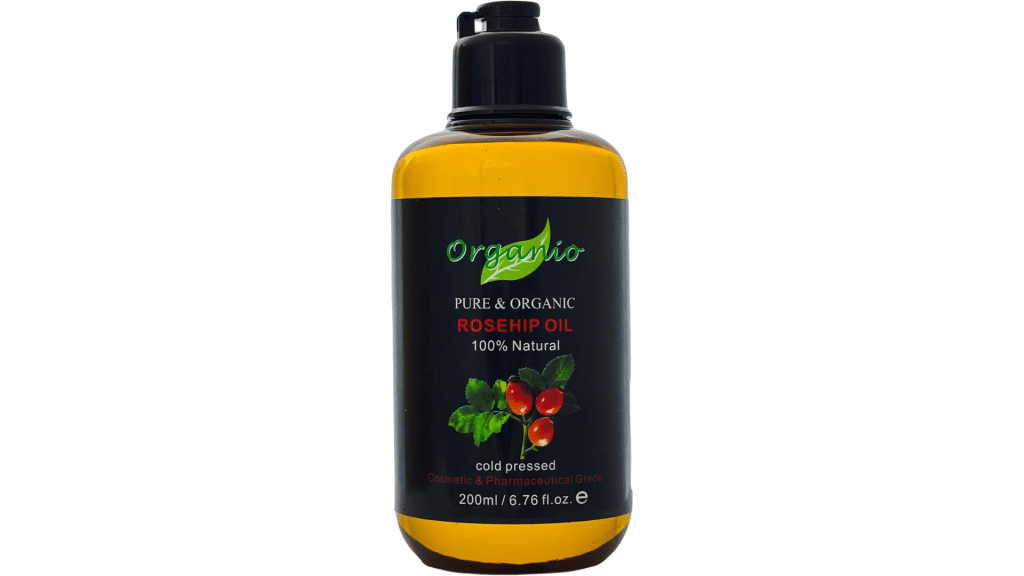
Don’t let the name fool you – this oil doesn’t smell like roses! It comes from the seeds of rose bushes and is famous for its skin-regenerating properties.
The tiny seeds inside rosehip fruits are cold-pressed to extract the oil. Because the seeds are so small, it takes a lot of rosehips to make a little oil, which is why good rosehip oil can be expensive.
What makes it special: Rosehip seed oil is packed with vitamins A and C, which help your skin repair itself. It’s excellent for scars, stretch marks, and signs of aging.
Best uses: Anti-aging treatments, scar healing, and evening skincare routines.
Where to buy: Organio Rosehip Oil
7. Avocado Oil
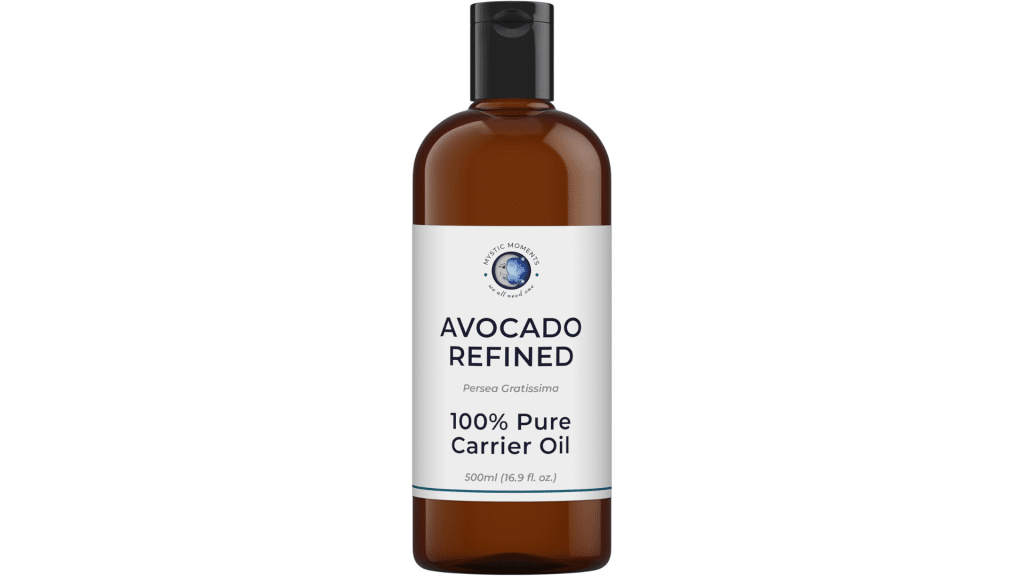
Just like the fruit you put on toast, avocado oil is rich and nourishing. It’s one of the heavier carrier oils, making it perfect for very dry skin.
Avocado oil can be made in two ways: cold-pressed from the fruit pulp (higher quality) or extracted using heat and chemicals from dried avocado pulp. Cold-pressed versions keep more vitamins and have a richer green color.
What makes it special: Avocado oil is full of vitamins E and D, plus healthy fats that deeply moisturize your skin. It penetrates deeper than many other oils.
Best uses: Dry skin treatments, mature skin care, and rich body oils.
Where to buy: Mystic Moments Avocado Oil
8. Macadamia Nut Oil
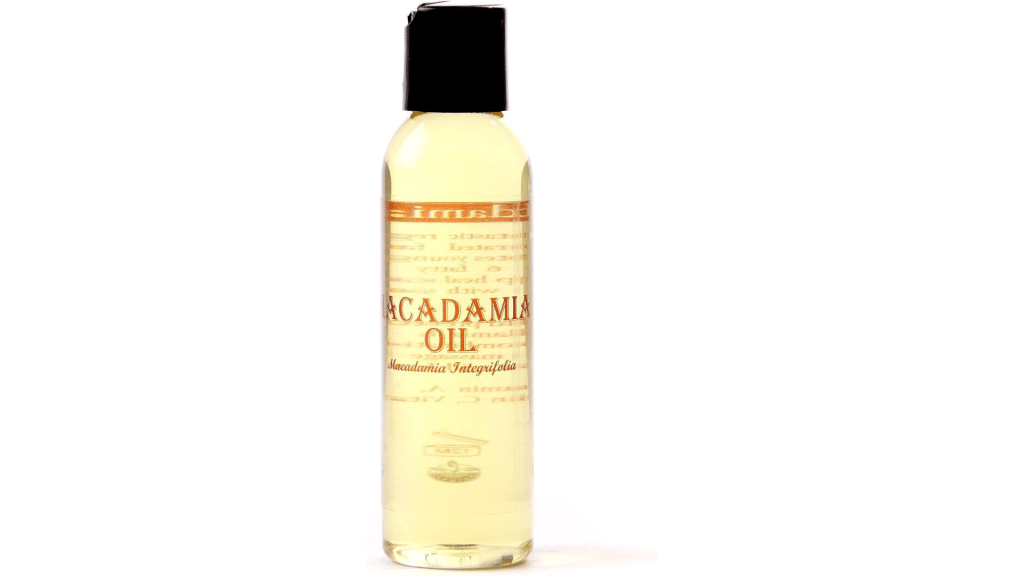
Australia’s native macadamia nuts produce an oil that’s perfect for skincare. It contains palmitoleic acid, which is naturally found in young, healthy skin but decreases as we age.
Macadamia nuts are cracked to remove the hard shell, then the nut meat is cold-pressed or expeller-pressed to extract the oil.
Australian macadamia oil is often considered the highest quality because of the ideal growing conditions.
What makes it special: Macadamia oil helps strengthen your skin’s protective barrier and has anti-inflammatory properties. It absorbs well and feels luxurious on the skin.
Best uses: Anti-aging treatments, barrier repair, and soothing irritated skin.
Where to buy: Mystic Moments Macadamia Oil
How to Choose the Right Oil
The extraction method matters a lot for quality. Cold-pressed oils keep more of their natural benefits because they’re not heated during processing. Refined oils last longer but might lose some beneficial compounds.
Here are some great essential oil pairings for each carrier oil:
- Jojoba + Lavender: Perfect for daily moisturizing
- Coconut + Tea Tree: Great for problem skin
- Sweet Almond + Chamomile: Ideal for sensitive skin
- Argan + Frankincense: Amazing for anti-aging
- Rosehip + Geranium: Excellent for scars and healing
How to Dilute Essential Oils Using Carrier Oils
Getting the dilution right is super important for safety. =
|
For adults: Use 1-3% essential oil concentration. That means 1-3 drops of essential oil per teaspoon of carrier oil. For sensitive skin: Stick to 0.5-1% concentration. Just 1-2 drops per teaspoon of carrier oil. For children over 2: Use only 0.25-0.5% concentration. That’s just 1 drop of essential oil in 2 teaspoons of carrier oil. |
Never use essential oils on babies under 6 months old.
Step-by-step mixing:
- Measure your carrier oil into a clean bowl or bottle
- Add your essential oil drops one at a time
- Stir gently or cap and shake if using a bottle
- Test a small amount on your arm first
- Wait 24 hours to make sure you don’t react
Storage tips: Keep your blends in dark glass bottles away from heat and light. Most blends will last 6-12 months if stored properly.
What is Aromatherapy, and How Do Carrier Oils Fit In?
Aromatherapy is the practice of using essential oils to support your physical and emotional well-being.
It’s been around for thousands of years and can help with everything from stress relief to muscle aches.
Carrier oils are essential for aromatherapy because they let you safely apply essential oils to your skin during massages, baths, or daily skincare routines.
Without carrier oils, aromatherapy would be limited to just smelling the oils – you’d miss out on all the benefits of topical application.
Common aromatherapy uses include:
- Massage: Carrier oils provide the perfect glide while delivering essential oil benefits
- Skincare: Daily face and body oils for ongoing wellness
- Bath treatments: A few drops of your blend in a warm bath (though the oil will float on top)
Conclusion
Choosing the right carrier oil depends on your skin type, what you want to achieve, and personal preference.
Dry skin loves richer oils like avocado or sweet almond, while oily skin does better with light options like jojoba or grapeseed.
Don’t be afraid to experiment with different combinations – that’s half the fun of making your own blends! Just remember to always patch test new combinations and start with lower concentrations of essential oils.
Most importantly, invest in quality, pure carrier oils from trusted sources. Your skin will thank you, and you’ll love the natural, chemical-free approach to wellness.

